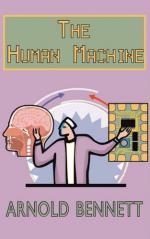In due season the man whose hobby is his brain will gradually settle down into a daily routine, with which routine he will start the day. The idea at the back of the mind of the ordinary man (by the ordinary man I mean the man whose brain is not his hobby) is almost always this: ’There are several things at present hanging over me—worries, unfulfilled ambitions, unrealised desires. As soon as these things are definitely settled, then I shall begin to live and enjoy myself.’ That is the ordinary man’s usual idea. He has it from his youth to his old age. He is invariably waiting for something to happen before he really begins to live. I am sure that if you are an ordinary man (of course, you aren’t, I know) you will admit that this is true of you; you exist in the hope that one day things will be sufficiently smoothed out for you to begin to live. That is just where you differ from the man whose brain is his hobby. His daily routine consists in a meditation in the following vein: ’This day is before me. The circumstances of this day are my environment; they are the material out of which, by means of my brain, I have to live and be happy and to refrain from causing unhappiness in other people. It is the business of my brain to make use of this material. My brain is in its box for that sole purpose. Not to-morrow! Not next year! Not when I have made my fortune! Not when my sick child is out of danger! Not when my wife has returned to her senses! Not when my salary is raised! Not when I have passed that examination! Not when my indigestion is better! But now! To-day, exactly as to-day is! The facts of to-day, which in my unregeneracy I regarded primarily as anxieties, nuisances, impediments, I now regard as so much raw material from which my brain has to weave a tissue of life that is comely.’
And then he foresees the day as well as he can. His experience teaches him where he will have difficulty, and he administers to his brain the lessons of which it will have most need. He carefully looks the machine over, and arranges it specially for the sort of road which he knows that it will have to traverse. And especially he readjusts his point of view, for his point of view is continually getting wrong. He is continually seeing worries where he ought to see material. He may notice, for instance, a patch on the back of his head, and he wonders whether it is the result of age or of disease, or whether it has always been there. And his wife tells him he must call at the chemist’s and satisfy himself at once. Frightful nuisance! Age! The endless trouble of a capillary complaint! Calling at the chemist’s will make him late at the office! etc. etc. But then his skilled, efficient brain intervenes: ’What peculiarly interesting material this mean and petty circumstance yields for the practice of philosophy and right living!’ And again: ’Is this to ruffle you, O my soul? Will it serve any end whatever that I should buzz nervously round this circumstance instead of attending to my usual business?’




